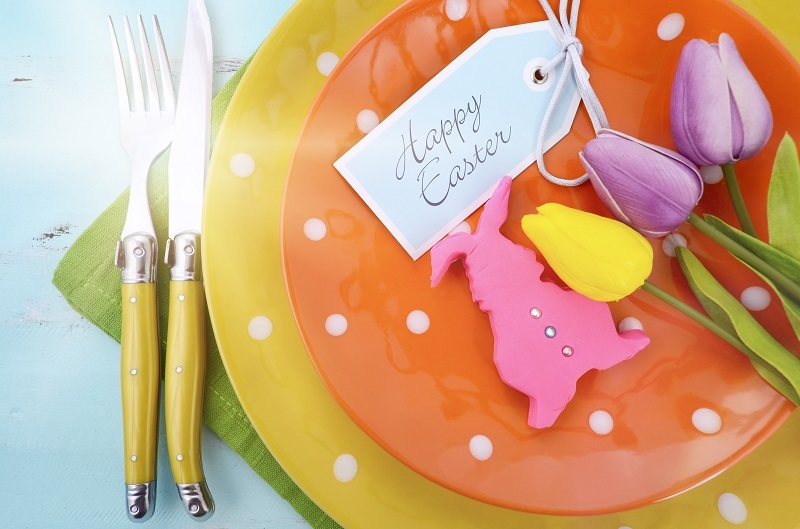How to Care for Poinsettias to Last All Winter
Posted on 22/08/2025
How to Care for Poinsettias to Last All Winter
Poinsettias (Euphorbia pulcherrima) are renowned for their vibrant, festive colors and striking beauty, making them synonymous with the holiday season. But what many people don't realize is that with proper care, these gorgeous plants can thrive well beyond Christmas, gracing your home with their vivid hues throughout the winter months. In this comprehensive guide, you'll discover how to care for poinsettias to last all winter, ensuring your plants remain healthy and radiant until spring.
Understanding Poinsettias: More than a Holiday Plant
Often mistaken for fragile, short-lived decorations, poinsettias are actually perennial shrubs native to Mexico. Their colorful "petals" are actually bracts--modified leaves--that surround the tiny, yellow flowers at the center. With the right conditions, a poinsettia can maintain its brilliance for three to four months, and even be kept for years!
Common Myths About Poinsettias
- Poinsettias only last a few weeks. False! With attentive care, they can thrive much longer.
- They are toxic to humans and pets. Partially true. While they can cause mild stomach upset if ingested, they are not deadly.
- Poinsettias require difficult care routines. False! They just need a bit of attention and the right environment.

Ideal Conditions for Winter-Long Poinsettia Health
To keep poinsettias healthy all winter, you'll need to provide an environment that mimics their natural growing conditions. Here's what to focus on:
Temperature
-
Room temperature between 60?F - 70?F (15?C - 21?C) is ideal.
Avoid exposing them to temperatures below 55?F (13?C), as cold drafts can damage the leaves and bracts. - Keep away from direct sources of heat, like radiators, fireplaces, or vents.
- Try to maintain consistent temperatures--sudden drops or rises can stress the plant.
Light
- Poinsettias love bright, indirect sunlight.
- Place your plant near a sunny window, but not in harsh, direct sunlight, which can scorch the bracts and leaves.
- If light is limited, consider using a grow light for supplemental support.
Humidity
- High humidity is key to preventing leaf drop and brown tips.
- If your indoor air is dry, mist the plant lightly with water every few days or use a humidifier to keep levels around 50-60%.
Avoiding Drafts
- Keep the plant away from cold windows, open doors, and heating vents.
- Frequent temperature changes can cause leaf loss and reduce bloom longevity.
Watering Your Poinsettia for Longevity
One of the most common reasons for poinsettia decline is improper watering. Watering too much or too little can quickly stress the plant and cause leaves to drop.
How Often Should You Water?
-
Check the soil moisture regularly.
Stick your finger into the soil an inch deep--if it feels dry, it's time to water. -
Never let the plant sit in water.
Water thoroughly, ensuring excess water drains from the bottom. - Reduce frequency in winter, as plants grow more slowly in lower light.
Pro tip: If your poinsettia is in a decorative foil wrapper, remove it or poke holes in the bottom so water doesn't accumulate.
Feeding Poinsettias During Winter
Fertilizer can help support healthy leaves and bracts. However, don't fertilize during the flowering period (when bracts are fully colored), as this can interfere with bloom duration.
- Once the bracts begin to fade, use a balanced, all-purpose houseplant fertilizer every 3-4 weeks.
- Mix fertilizer at half strength to avoid root burn.
- If the plant is kept in the same pot for over a year, repot and refresh the soil for best results.
Pruning and Maintenance: Keeping Poinsettias Looking Their Best
To maintain your poinsettia's shape and health, occasional pruning and maintenance are essential.
- Remove faded or yellowing leaves and bracts throughout the season.
- If stems become leggy, you can lightly pinch them back to promote bushier growth.
- Use sterilized scissors or pruners to avoid spreading disease.
Troubleshooting Common Poinsettia Problems
Even with the best poinsettia care, occasional issues may arise. Here's how to spot and solve the most common problems:
Leaf Drop
-
Possible causes: Cold drafts, low humidity, or inconsistent watering.
Solution: Stabilize the plant's environment and keep soil evenly moist--but not soggy.
Wilting
-
Possible causes: Both underwatering and overwatering.
Solution: Check soil moisture--if it's very dry or soggy, adjust your routine immediately.
Brown Leaf Tips
-
Possible causes: Low humidity, or excess fertilizer.
Solution: Increase humidity and flush soil with water to remove excess salts, if needed.
Pests
-
Watch for: Whiteflies, spider mites, or aphids.
Solution: Remove insects with a gentle spray of water and treat with insecticidal soap if necessary.
How to Display Poinsettias for Lasting Beauty
The right presentation can extend both the beauty and life of your poinsettias. Display your poinsettia away from fruit bowls, as ripening fruit emits ethylene gas that shortens bloom life. Choose high-traffic areas where you can both enjoy their presence and easily monitor their needs.
Tips for Stunning Poinsettia Displays
- Combine different poinsettia colors (red, white, pink, or marbled) for a dazzling holiday display.
- Pair with evergreens, ferns, or ivy for a full, natural arrangement.
- Use decorative containers with proper drainage to avoid root rot.
How to Keep Poinsettias Alive After Winter
Many people discard their holiday poinsettias once the bracts fade, but with some extra effort, you can keep them growing for another season--or even years!
Late Winter and Early Spring Care
- After the holidays, bracts may fade. Prune the plant back to about 6-8 inches to encourage new growth.
- Continue to water and fertilize lightly as new shoots emerge.
- As temperatures warm, move the plant outdoors to a shady, sheltered spot--just be sure any threat of frost has passed.
How to Rebloom a Poinsettia for Next Year
- In late September or early October, start the darkness routine.
- Each night, cover the plant with a box or keep in a completely dark closet for 14 hours.
- Expose to bright, indirect light during the day.
- This process triggers new bract coloration--usually within 8-10 weeks.
With patience and attentive care, your poinsettia can brighten your holidays year after year!

Frequently Asked Questions: Caring for Poinsettias
How long do poinsettias last indoors?
Poinsettias can last for months with proper care, often remaining vibrant from November through March.
Why are my poinsettias dropping leaves?
Leaf drop is usually caused by sudden temperature changes, cold drafts, or improper watering. Adapt the environment and water routine to keep leaves intact.
Is poinsettia toxic to pets?
While not highly toxic, poinsettias can cause mild digestive upset if ingested by cats, dogs, or people. Severe reactions are rare. Keep plants out of reach when possible.
Can I plant poinsettias outdoors?
In USDA zones 9-11 (where winters are mild), poinsettias can be planted outdoors as shrubs. In colder climates, keep them inside during winter for best results.
Conclusion: Enjoy Vibrant Poinsettias All Winter Long
With a bit of love and a well-practiced care routine, your poinsettias can last all winter and beyond. By focusing on:
- Bright, indirect sunlight
- Consistent temperatures (60?F-70?F)
- Proper watering and humidity
- Regular pruning and feeding
You'll enjoy show-stopping color from your poinsettias throughout even the darkest winter months. So this year, don't toss your holiday poinsettia after Christmas--nurture it, and it'll reward you with months of vibrant beauty!
Ready for more indoor gardening tips and plant care advice? Explore our other guides and turn your home into a winter haven of living color!
Latest Posts
Red Roses as Icons of Passion on Valentine's Day
How to Care for Poinsettias to Last All Winter
What Hidden Messages Does Your Birth Flower Hold For You






